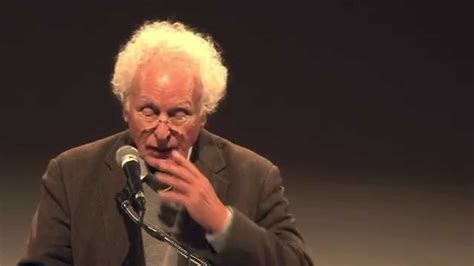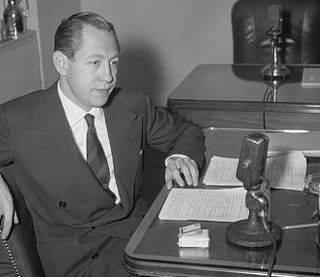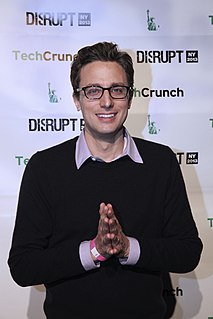A Quote by Jerry Mander
The program is only the excuse to get you to watch the advertising. Without the ads there would be no programs. Advertising is the true content of television and if it does not remain so, then advertisers will cease to support the medium, and television will cease to exist as the popular entertainment it presently is.
Related Quotes
People have romantic notions about television. In the highest realms they think it's some sort of art medium, and it's not. Others think it's an entertainment medium, it's not that either. It's an advertising medium. It's a method to deliver advertising like a cigarette is a method to deliver nicotine.
Advertising and content have always been bound together - in print, on television, and on the web. Sure, you can skip the ad - just flip the page, or press 'ffwd' on your DVR. But great advertising, as I've long argued, adds value to the content ecosystem, and has as much a right to be in the conversation as does the publisher and the consumer.
In contemporary society, advertising is everywhere. We cannot walk down the street, shop, watch television, go through our mail, log on to the Internet, read a newspaper or take a train without encountering it. Whether we are alone, with our friends or family, or in a crowd, advertising is always with us, if only on the label of something we are using.
Lying and cheating in advertising, in the long run, are commercial suicide. Dishonesty in advertising destroys not only confidence in advertising, but also in the medium which carries the dishonest advertisement. . . . No one can be ill in a community without endangering others; no advertiser can be dishonest without casting suspicion upon others.
Man and fascism cannot co-exist. If fascism conquers, man will cease to exist and there will remain only man-like creatures that have undergone an internal transformation. But if man, man who is endowed with reason and kindness, should conquer, then Fascism must perish, and those who have submitted to it will once again become people.
Consciousness will always be present, though a particular
consciousness may cease. For example, the particular tactile
consciousness that is present within this human body will cease when
the body comes to an end. Likewise, consciousnesses that are
influenced by ignorance, by anger or by attachment, these too will
cease. But the basic, ultimate, innermost subtle consciousness will
always remain. It has no beginning, and it will have not end.
Advertising and the free society are closely connected. Advertising helps to make a free society remain so by increasing competition, and by helping to maintain the freedom of the mass media themselves. The free society is one where advertising and advertising agencies are likely to be in considerable demand, though it is true that even in a totally centralist society there would still be a need for organisations and people to have access to mass communication media.






































